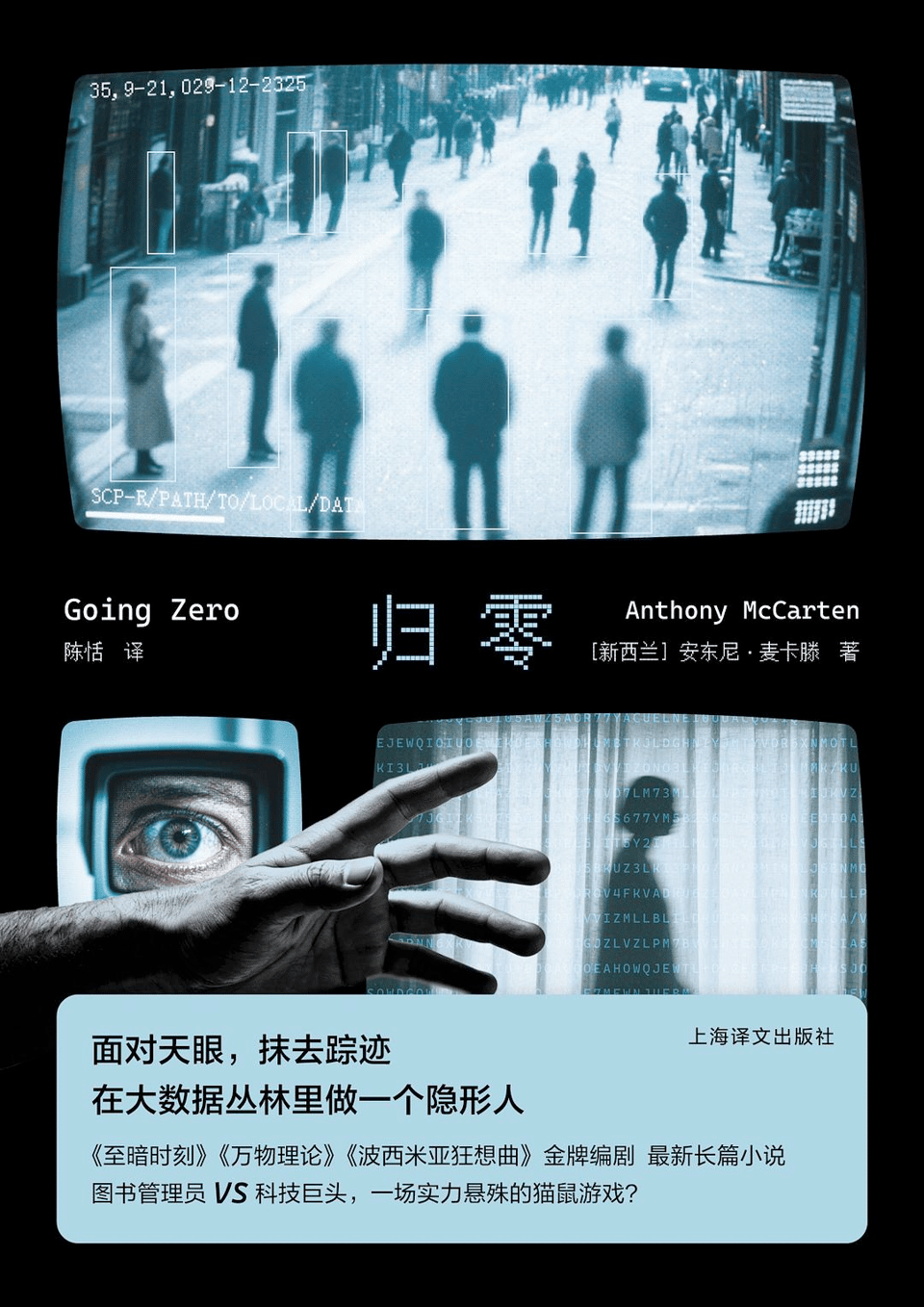How Close Are We to "Going Zero"?
You probably haven't heard of a website called "How Close to Black Mirror Are We?", which introduces itself as follows:
> Black Mirror is a British anthology TV series created by Charlie Brooker, exploring the dark, satirical, and often dystopian sides of technology and society. Each episode presents a standalone story about the unintended consequences of technological innovation. This site tracks how close real-world technology and society are to the scenarios depicted in each episode. Progress bars are rough, subjective estimates based on current trends and news, not scientific measurements.
A significant portion of Black Mirror's themes revolves around the negative impacts of technological development on humanity, such as backfiring on humans or privacy disasters. According to the website, our society is currently closest to the sixth season's fifth episode, "Demon 79," with a progress of 90%.
Anthony McCarten's Going Zero is also a Black Mirror-like work. The author is a screenwriter, so the reading experience of this book is very close to watching a movie—so close that I even think this book might have been written as a script first and then adapted into a novel. It's so much like a classic Hollywood film that if such a movie were to appear one day, I wouldn't be surprised at all.
The story begins with the "Going Zero" project. This project was initiated by the world's largest social network company, "World Share," and the U.S. Central Intelligence Agency (CIA). The founder of "World Share" claimed that his team could find anyone within 30 days using various modern technologies. Through this, "World Share" hoped to secure a multi-billion-dollar contract with the CIA.
They launched a recruitment drive, offering a $3 million reward to anyone who could not be found within 30 days. Ultimately, they selected ten people from a vast pool of applicants. Half of these ten could be seen as representatives of ordinary people, while the other five were professionals skilled in various technologies.
Most of these ten people couldn't last more than a few days, even though they were very careful—for example, turning off their phones, paying only in cash, or hiding completely in secluded spaces. However, "World Share" could still find them through various means because, by combining the data they already had with algorithms, they could infer each person's behaviour patterns.
Among these ten, there was also a privacy expert who wasn't short on money, such as No. 02, who was caught second-to-last. This person was the founder of a company called "MaskIt," which specialises in helping people hide their identities. His purpose in participating in this project was the same as "World Share's"—he wanted to use his ultimate victory to endorse his own project, thereby gaining more users and orders.
The service provided by MaskIt can be seen as a comprehensive "proxy" service, allowing users to choose to use it in various aspects: email, phone, credit cards, etc., thereby hiding their real identities.
Thus, this founder used a proxy credit card to make purchases, hid in an apartment, and was naturally the most loyal user of his own product, using various hidden identities to operate online. Since these identities were encrypted, he was very confident that he could last until the end.
But he didn't make it to the end. How was he found? "World Share" discovered one of his T-shirts, which had the name of a song printed on it. This song was relatively obscure, with only about 10,000 listeners nationwide. Based on this song, the "World Share" team found No. 02's music playlist. Although he himself used a proxy account for the "World Share" team, this was enough to associate this playlist with No. 02 himself. The next step was simple: just find the person who was looping this playlist.
I have had a similar experience. Although I have never registered for TikTok, a few years ago, I used it on an old phone. I believe my usage was discreet enough—I didn't even register, and I didn't install a SIM card on that phone, meaning I could only scroll for a while when there was Wi-Fi. Even so, it quickly grasped my preferences. A friend who works at an internet company told me that even without my phone number, it wouldn't affect its ability to roughly piece together my preferences through algorithms.
How far are we from the world of Going Zero? The author's view is probably that we are already in it. The book does not set the time in the future or near future—it is now. "World Share" might sound like a company like Facebook, but in the book, Facebook and "World Share" appear side by side, and the mention of COVID-19 also means the author sets the story's time in the present.
Why did the CIA initiate this cooperation with "World Share"? Its starting point was to prevent crime. If this system can operate, it not only means that criminals can be found quickly but also that their behaviour can be predicted in advance based on data, thereby preventing their crimes. Naturally, this is a good and hard-to-refute reason.
If large institutions or government departments have unlimited access to people's data and analyse and utilise it, society will inevitably move towards totalitarianism; conversely, if these data are not used reasonably, various crimes will be tolerated. Future society will forever swing between the two.

---
Note: The URL for "How Close to Black Mirror Are We?" is [www.howclosetoblackmirror.com](http://www.howclosetoblackmirror.com).